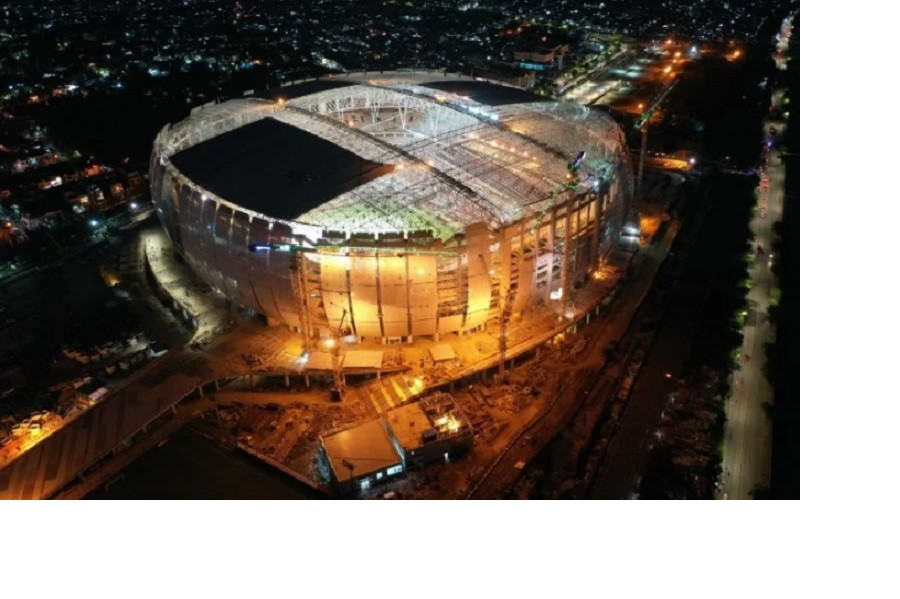Popular Reads
Top Results
Can't find what you're looking for?
View all search resultsPopular Reads
Top Results
Can't find what you're looking for?
View all search resultsMore than just a stadium
Jakarta International Stadium is hoped to be a boon for health, environment and economy.
Change text size
Gift Premium Articles
to Anyone
T
he time has come. Indonesia will soon finally have an impressive, grandiose soccer stadium in compliance with FIFA standards and with a retractable roof, as the 82,000-seater Jakarta International Stadium (JIS) is set to be ready by the end of this year.
Built on 26.5 hectares of land, the multipurpose stadium is 73 meters high, making it one of the highest stadiums in the world, with nine floors offering various facilities including commercial space and parking.
Its exterior will be covered with perforated aluminum composite panels, ensuring that the stadium’s interior is properly ventilated and allowing LED illumination to bring it to life after dusk.
It will be a shared home ground for two soccer teams: The national squad and the capital city's club Persija Jakarta.
Costing Rp 4.5 trillion (US$312 million) in city funds, JIS will be the first soccer stadium in the country equipped with a retractable roof, allowing games and shows to go on uninterrupted in the event of heavy rain. It is also the second venue in Southeast Asia to feature such technology, after Singapore’s National Stadium.
Furthermore, JIS is the largest stadium by capacity with a retractable roof in Asia, and the second-largest retractable-roof stadium by capacity in the world, after AT&T Stadium in Texas, the United States.
To say that JIS is just another sporting arena would be an understatement.
A sound mind in a sound body is something that we are all striving for, especially during the pandemic. The stadium promises to provide citizens with proper facilities to improve and maintain their quality of life, as a solid foundation for a nation.
The stadium can also host live performances, including music concerts. This mixture of sports and entertainment is a classic recipe for attracting visitors, both domestic and international.
As a platinum-certified green stadium (accredited by the Green Building Council Indonesia, which is affiliated with the World Green Building Council), JIS uses hybrid grass (a mixture of 95 percent natural grass and 5 percent synthetic grass) and uses pied stilt birds as an unorthodox approach to field maintenance.
These waterbirds from Boyalali in Central Java are let out each day to eat pests, therefore effectively maintaining the fertility of the grass without the need to use harmful pesticides.
JIS is hoped to be a boon for health, environment and economy.
When it opens, the stadium has the potential to boost tourism in the capital, which may open the door to more exciting profitable activities, a refreshing contrast from the already saturated shopping malls.
The focus then will be on making sure people continuously use the venue effectively to build a healthy Jakarta and Indonesia in general.











